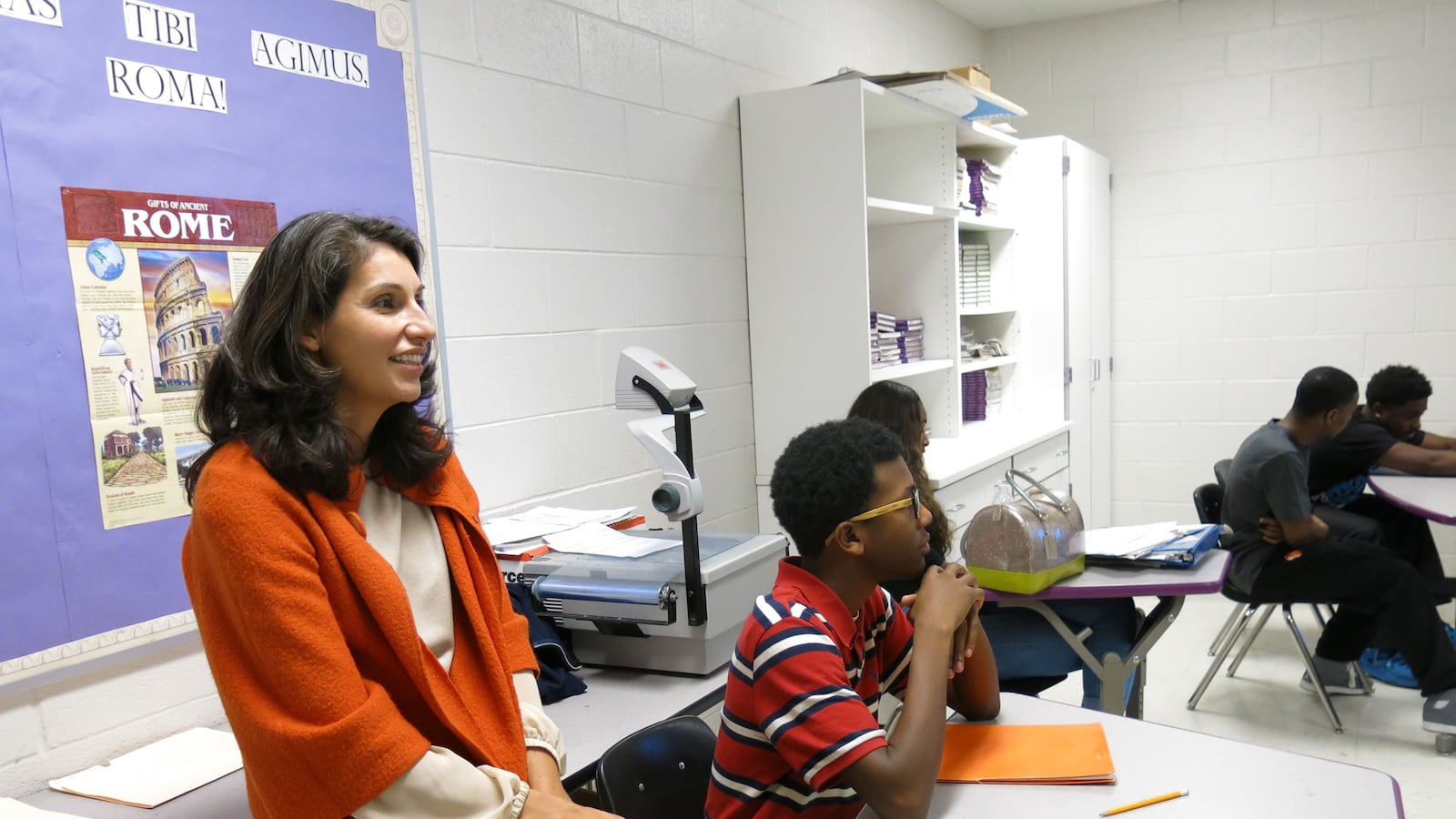For Shelby County Schools’ chief academic officer, Heidi Ramirez, improving students’ performance starts with the creation of a literacy plan to help those reading below grade level – nearly half of the student population.
Ramirez, who was appointed in October, is planning an offensive against the low literacy levels that plague Memphis students and are seen as holding the city’s economic development back. Only a third of students in kindergarten through third grade are reading on grade level, according to the 2014 state report card, and advocacy groups estimate that about a quarter of adults in Memphis are functionally illiterate.
Ramirez told Chalkbeat that she and her administrative team are spending the next several weeks drafting a comprehensive literacy plan that lays out expectations for students, curriculum and testing, and training for teachers at each grade level.
“The plan will need to lay out an instructional vision and also be clear about the kinds of the assessments that the district needs,” Ramirez said. “It will have to be a plan that the entire district can get behind.”
As part of the process, Ramirez is visiting schools and asking educators about the efforts they already have underway to boost students’ reading and writing skills. Ramirez said she would visit schools on an ongoing basis to inform her office’s initiatives.
During a recent visit to Southwind High School, where half of students are reading on grade level, Ramirez asked teachers to explain their strategies for improving literacy and the extent that literacy challenges interfere with instruction.

Principal Terrence Anthony Brown said the schools “no grade book closure” practice is used to encourage students to keep working toward mastery in the subjects where they struggle.
“If you give up attempting, then you’ll fail,” said Brown, who also added students receive before and after school tutoring. “One of our challenges is motivating students. They have to be accepting, willing to study and retake tests until they are proficient.”
A world history teacher, Jeanie Williams, told Ramirez the district needs a centralized database to share lessons and ideas that work well in the classroom.
“It would be so helpful if we had a way for teachers to share what (successful) lessons they are using in the classroom,” Williams said.
Ramirez’s arrival in Shelby County follows criticism about the absence of experienced educators among Superintendent Dorsey Hopson’s top schools officials. Trained as an art teacher but without any classroom teaching experience, Ramirez most recently has been a consultant focusing on curriculum and instruction. She previously was chief academic officer in Milwaukee, where she also emphasized literacy during her two-year tenure between 2010 and 2012.
That emphasis resulted in a “comprehensive literacy plan” that included curriculum standards for each grade, a vision for integrating literacy into all academic subjects, and resources to make sure students with disabilities shared in the literacy push. Under her leadership, Milwaukee selected a literacy curriculum produced by the publishing company Houghton Mifflin Harcourt, and reading scores rose the following year.
Ramirez arrives in a district that is facing a number of policy questions related to charter schools, state school takeovers, student mobility, and other issues. She declined to address those often controversial topics during her conversation with Chalkbeat, instead emphasizing that her focus is on academics — and on how to involve families and communities to support academic growth.

“We want parents to be clear about how they can support [instruction],” she said. “Parents should have a good sense about what they should see in their child’s classroom. … There’s a whole range of ways parents can be involved.”
Those ways, she said, could involve learning how to question their children after reading together, talking to their children about current events, or helping their children learn new words.
But even as she characterized the district’s literacy needs as urgent, Ramirez said she would proceed cautiously to ensure that educators support the initiative. Some local educators have criticized the introduction of new learning standards known as the Common Core as being too fast to be effective.
“We also have to pace the work as we roll it out to make sure we don’t overwhelm the staff,” Ramirez said.
Contact Tajuana Cheshier at tcheshier@chalkbeat.org and (901) 730-4013.
Follow us on Twitter: @TajuanaCheshier, @chalkbeattn.
Like us on Facebook: https://www.facebook.com/chalkbeattn.
Sign up for our newsletter for regular updates on Tennessee education news: http://tn.chalkbeat.org/newsletter/

